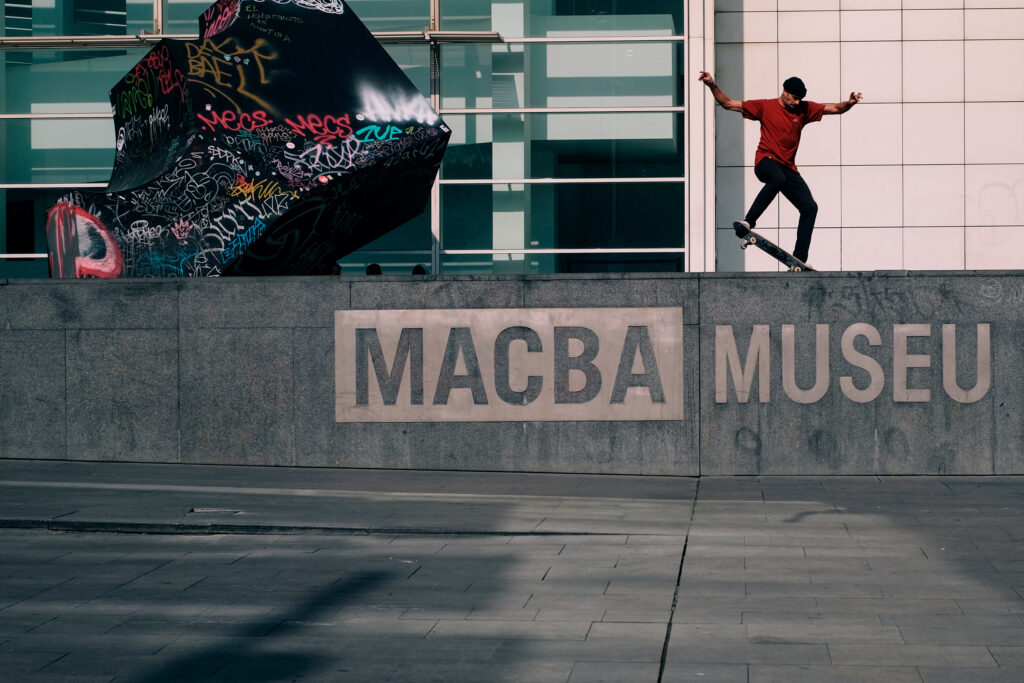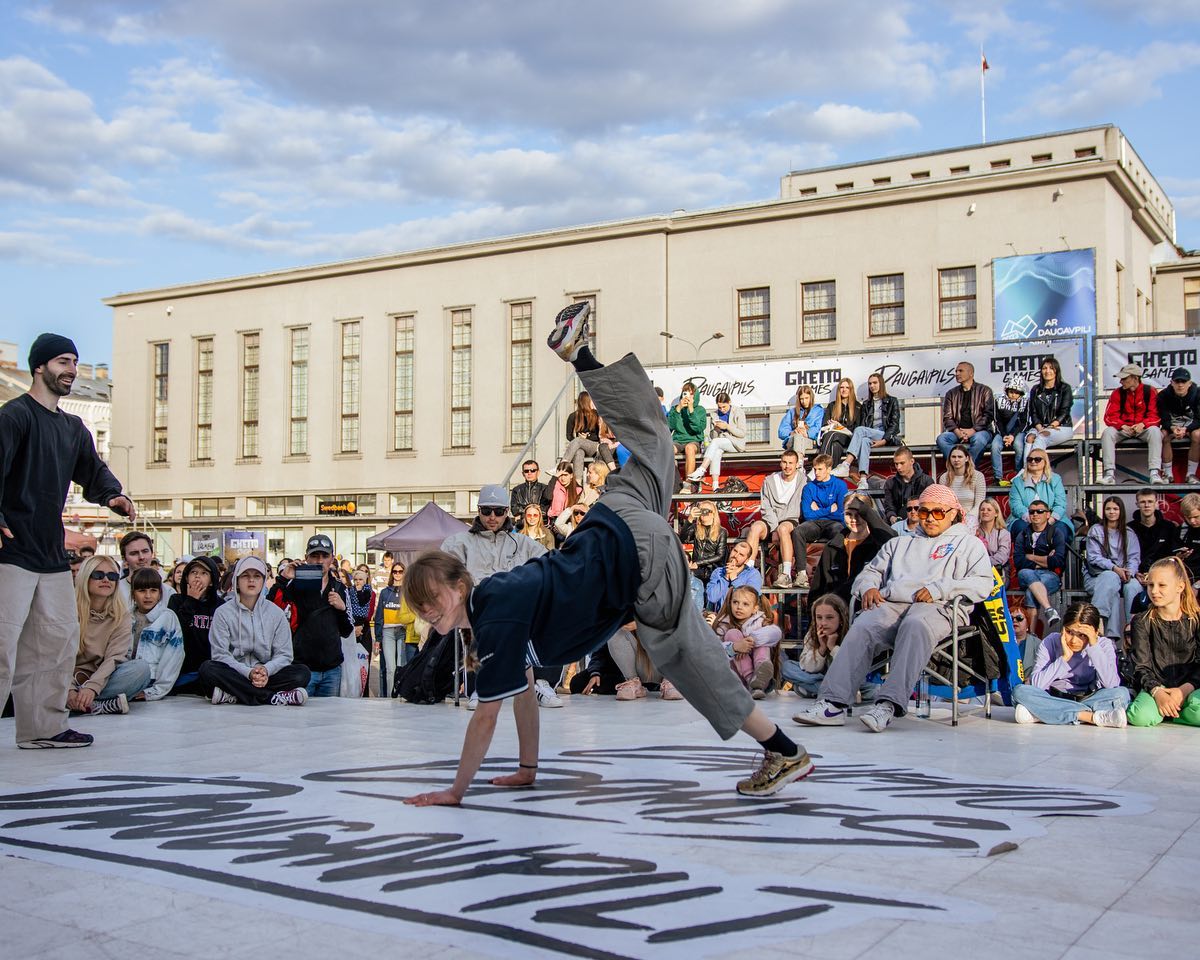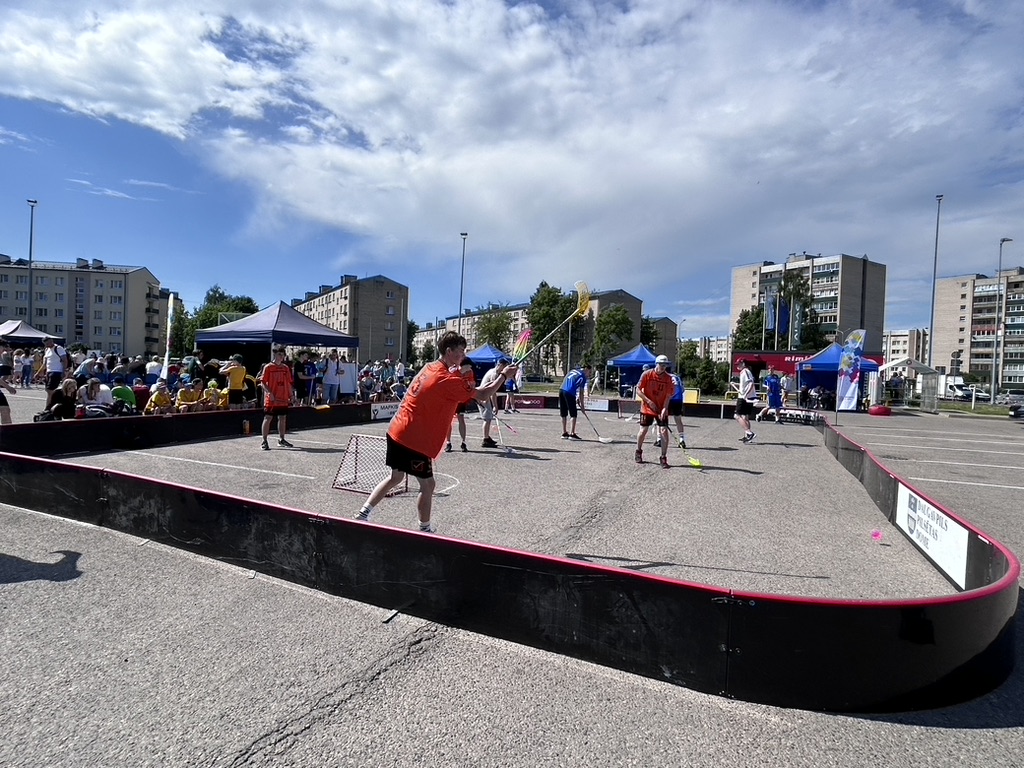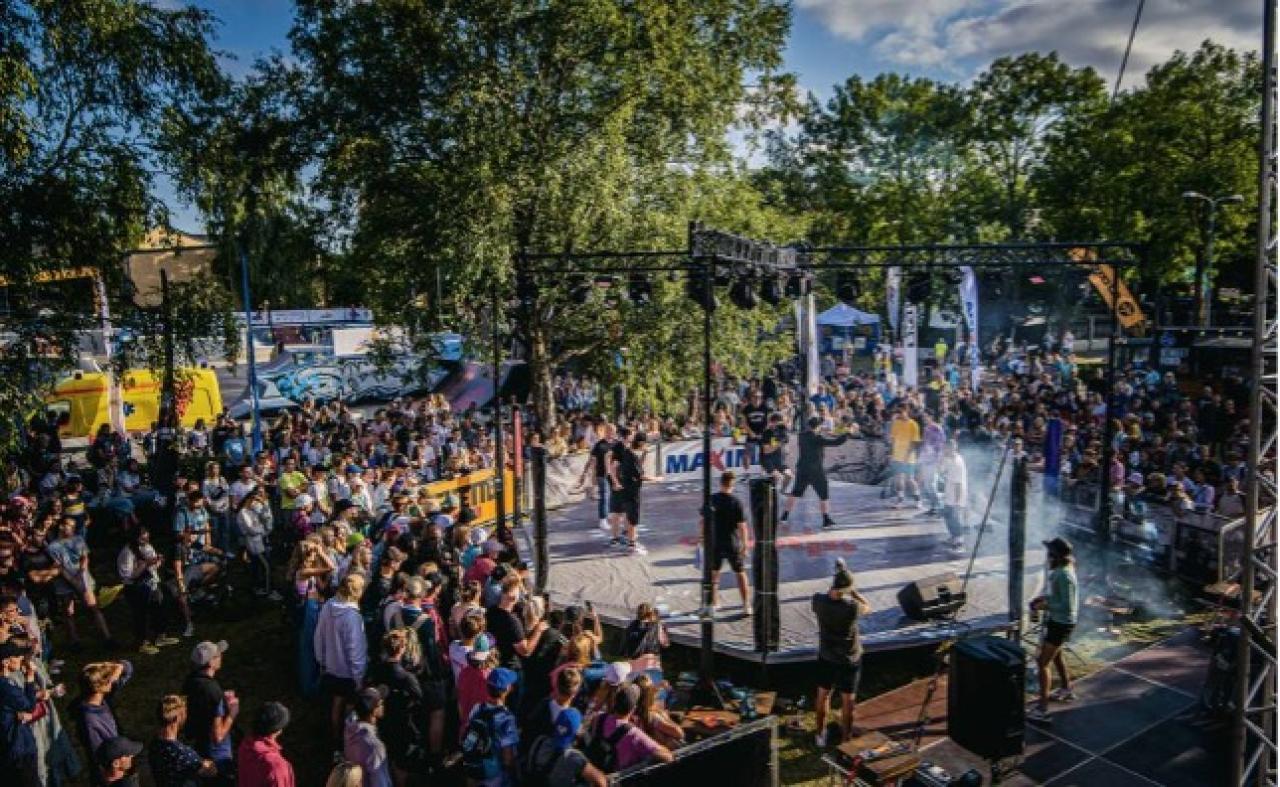The Rise of Street Sport Culture
Over the past few years, street sports have emerged as much more than recreational activities; they are powerful cultural movements that resonate deeply with younger generations. Skateboarding, Basket 3x3 and breakdancing have gained official recognition in the Olympic Games. These sports are symbols of independence, creativity, and self-expression, drawing young enthusiasts who are eager to travel for competitions, events, and spontaneous meetups.
Through social media platforms like Instagram, TikTok, and digital communication tools such as Discord, young athletes and enthusiasts organize both formal and informal events.
Social Media play a key role in organizing these communities and allow users to create servers for real-time communication, enabling street sport communities to share media, plan events, and stay connected. Street sports meetups and events often occur on short notice, blending digital and physical spaces into an "urban playground." These events create hybrid experiences where the virtual world supports and enhances the use of real-world urban spaces.

© weareskate
Unconventional Places as Tourist Attractions
An interesting phenomenon linked to street sports is the transformation of so-called "no-sense places" into community places and into tourist attractions. These are areas traditionally overlooked by communities and mainstream tourism, such as abandoned industrial zones, empty parking lots, and underdeveloped urban spaces. However, for street sport enthusiasts, these spaces represent potential arenas for creativity and competition.
In cities like Barcelona and Berlin, street sports have become part of the local culture, with public spaces frequently re-purposed for skateboarding, BMX riding, or 3x3 basketball tournaments. These cities are now recognized as key street sport hubs, attracting young tourists from around the world who are eager to participate in or simply watch these dynamic activities. One striking example of this transformation is the Ghetto Games festival held in different cities including Daugavpils, Latvia. What began as a grassroots initiative has now grown into a major international event, featuring sports like 3x3 basketball, BMX, breakdancing, and street football. Daugavpils, a city not typically considered a tourist destination, has become a magnet for street sport enthusiasts from across Europe. The Ghetto Games not only bring life to this city but also highlight the ability of street sports to create new forms of tourism in unusual places.

© Daugavpils ghetto games
Youth-Centered Tourism and Subcultures
This new form of tourism appeals to younger generations who are less interested in traditional travel experiences and more eager to explore alternative destinations that align with their lifestyle and passions. The rise of street sports tourism taps into this desire for authenticity, community, and spontaneous experiences. For many young tourists, these events are not just about the sports themselves but about the subcultures and social connections that arise from them. Digital platforms further amplify this trend. For example, street sport enthusiasts often share their experiences and locations through social media, creating a “place to be” and encouraging others to visit these places. Street sports events can therefore generate organic, digital buzz that attracts additional tourists, not just for the event but for the urban spaces being revitalized by these activities.
Furthermore, many of these events are organized by the communities themselves, blending digital coordination with grassroots action. Unlike traditional sports tourism, which often relies on large corporate sponsors and high-profile venues, street sports events are often spontaneous, low-cost, and accessible to a wide range of participants. This inclusivity makes them especially appealing to young people who are looking for authentic, engaging experiences without the constraints of formalized tourism.

© raffaella Lioce- Daugavpils street sport festival 2024
Street Sports and Urban Regeneration
From a broader perspective, street sports are also acting as catalysts for urban regeneration. By revitalizing forgotten or neglected areas, these sports breathe new life into cities, creating opportunities for social interaction, economic development, and cultural exchange. Local governments and urban planners are starting to recognize the potential of these sports as a tool for reimagining public spaces.
Re-Gen cities are testing an planning actions to actively incorporate sports and street sport facilities into their regeneration projects. These developments not only provide recreational spaces for local youth but also could act as tourist attractions for a global audience, if integrated into wide digital communities of sport and street port passionate By integrating sport and street sports into the urban landscape, cities can create sustainable tourism models that benefit both residents and visitors.
Street sport tourism can also play a role in promoting sustainability. Unlike traditional tourism, which often leads to over-tourism in popular destinations, street sports can redistribute tourist flows to less-visited areas, relieving pressure on overcrowded city centers. This type of tourism tends to have a smaller environmental footprint as it focuses on outdoor activities and often makes use of existing urban infrastructure rather than requiring new development.
© weareskate
Looking ahead
Looking ahead, informal sports, street sports and tourism hold immense potential to shape the future of urban development. As cities continue to grow and evolve, street sports offer a way to adapt to the changing needs of younger generations while breathing new life into urban spaces. By embracing this trend, cities can attract tourists in a more sustainable, community-focused way, creating a future where sport, tourism, and urban regeneration intersect.
In conclusion, street sport and tourism are much more than passing trends; they represent a cultural shift that is redefining how we use and view urban spaces. As digital platforms continue to connect young people across the globe, these sports will likely play an even bigger role in shaping tourism and urban development. Events like the Ghetto Games and the spontaneous meetups in cities, demonstrate how street sports can turn "unusual places" into thriving tourist destinations, offering a sustainable future for urban regeneration.

